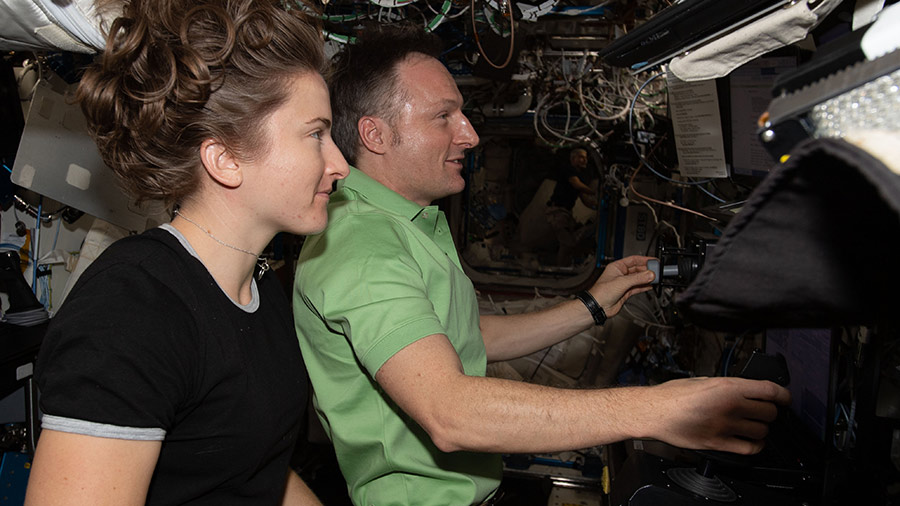
Space biology research and spacewalk preparations kept the Expedition 66 crew busy aboard the International Space Station on Thursday. The orbital residents also ensured space hardware including exercise gear, a specialized microscope, and fluid systems continued operating in tip-top shape.
Living long-term in microgravity affects every aspect of the human body and the eyes are no exception. A study recently delivered aboard the SpaceX Cargo Dragon vehicle and under way today at the orbital lab is exploring how visual function is impacted by extended space missions. Three NASA astronauts, Raja Chari, Thomas Marshburn, and Kayla Barron were on duty throughout the day contributing to the investigation that may protect astronaut’s vision and improve eye treatments on Earth.
Marshburn first started his day in the Tranquility module strengthening cables on the advanced resistive exercise device. Chari, toward the end of his work shift, cleaned the Veggie space botany facility before uninstalling and packing a spacecraft atmosphere monitor for return to the ground.
Microbe collections continued for the third day this week as ESA (European Space Agency) astronaut Matthias Maurer swabbed station surfaces and stowed the samples for later analysis. The German astronaut also serviced the Mochii electron-scanning microscope, set up a computer for Earth observations, and worked on the Cytoskeleton human cell experiment.
NASA Flight Engineer Mark Vande Hei was on duty Thursday afternoon in the U.S. Destiny laboratory module conducting life support maintenance. The two-time station visitor worked on the fluid servicer system that removes gas bubbles and cleans fluid lines throughout the orbital lab.
Vande Hei also joined cosmonauts Anton Shkaplerov and Pyotr Dubrov helping the Russian duo install lights, batteries and video gear on their Orlan spacesuit helmets. The pair started the day with a physical fitness test to prepare for a spacewalk planned for Jan. 19. They will spend about seven hours in the vacuum of space configuring both the Prichal and Nauka modules.
Learn more about station activities by following the space station blog, @space_station and @ISS_Research on Twitter, as well as the ISS Facebook and ISS Instagram accounts.
Get weekly video highlights at: http://jscfeatures.jsc.nasa.gov/videoupdate/
Get the latest from NASA delivered every week. Subscribe here: www.nasa.gov/subscribe
